第69章 MACHIAVELLI(6)
When the princes and commonwealths of Italy began to use hired troops, their wisest course would have been to form separate military establishments.Unhappily this was not done.The mercenary warriors of the Peninsula, instead of being attached to the service of different powers, were regarded as the common property of all.The connection between the State and its defenders was reduced to the most simple and naked traffic.The adventurer brought his horse, his weapons, his strength, and his experience, into the market.Whether the King of Naples or the Duke of Milan, the Pope or the Signory of Florence, struck the bargain, was to him a matter of perfect indifference.He was for the highest wages and the longest term.When the campaign for which he had contracted was finished, there was neither law nor punctilio to prevent him from instantly turning his arms against his late masters.The soldier was altogether disjoined from the citizen and from the subject.
The natural consequences followed.Left to the conduct of men who neither loved those whom they defended, nor hated those whom they opposed, who were often bound by stronger ties to the army against which they fought than to the State which they served, who lost by the termination of the conflict, and gained by its prolongation, war completely changed its character.Every man came into the field of battle impressed with the knowledge that, in a few days, he might be taking the pay of the power against which he was then employed, and, fighting by the side of his enemies against his associates.The strongest interests and the strongest feelings concurred to mitigate the hostility of those who had lately been brethren in arms, and who might soon be brethren in arms once more.Their common profession was a bond of union not to be forgotten even when they were engaged in the service of contending parties.Hence it was that operations, languid and indecisive beyond any recorded in history, marches and counter-marches, pillaging expeditions and blockades, bloodless capitulations and equally bloodless combats, make up the military history of Italy during the course of nearly two centuries.Mighty armies fight from sunrise to sunset.A great victory is won.Thousands of prisoners are taken; and hardly a life is lost.A pitched battle seems to have been really less dangerous than an ordinary civil tumult.
Courage was now no longer necessary even to the military character.Men grew old in camps, and acquired the highest renown by their warlike achievements, without being once required to face serious danger.The political consequences are too well known.The richest and most enlightened part of the world was left undefended to the assaults of every barbarous invader, to the brutality of Switzerland, the insolence of France, and the fierce rapacity of Arragon.The moral effects which followed from this state of things were still more remarkable.
Among the rude nations which lay beyond the Alps, valour was absolutely indispensable.Without it none could be eminent; few could be secure.Cowardice was, therefore, naturally considered as the foulest reproach.Among the polished Italians, enriched by commerce, governed by law, and passionately attached to literature, everything was done by superiority and intelligence.
Their very wars, more pacific than the peace of their neighbours, required rather civil than military qualifications.Hence, while courage was the point of honour in other countries, ingenuity became the point of honour in Italy.
From these principles were deduced, by processes strictly analogous, two opposite systems of fashionable morality.Through the greater part of Europe, the vices which peculiarly belong to timid dispositions, and which are the natural defence Of weakness, fraud, and hypocrisy, have always been most disreputable.On the other hand, the excesses of haughty and daring spirits have been treated with indulgence, and even with respect.The Italians regarded with corresponding lenity those crimes which require self-command, address, quick observation, fertile invention, and profound knowledge of human nature.
Such a prince as our Henry the Fifth would have been the idol of the North.The follies of his youth, the selfish ambition of his manhood, the Lollards roasted at slow fires the prisoners massacred on the field of battle, the expiring lease of priestcraft renewed for another century, the dreadful legacy of a causeless and hopeless war bequeathed to a people who had no interest in its event, everything is forgotten but the victory of Agincourt.Francis Sforza, on the other hand, was the model of Italian heroes.He made his employers and his rivals alike his tools.He first overpowered his open enemies by the help of faithless allies; he then armed himself against his allies with the spoils taken from his enemies.By his incomparable dexterity, he raised himself from the precarious and dependent situation of a military adventurer to the first throne of Italy.To such a man much was forgiven, hollow friendship, ungenerous enmity, violated faith.Such are the opposite errors which men commit, when their morality is not a science but a taste, when they abandon eternal principles for accidental associations.